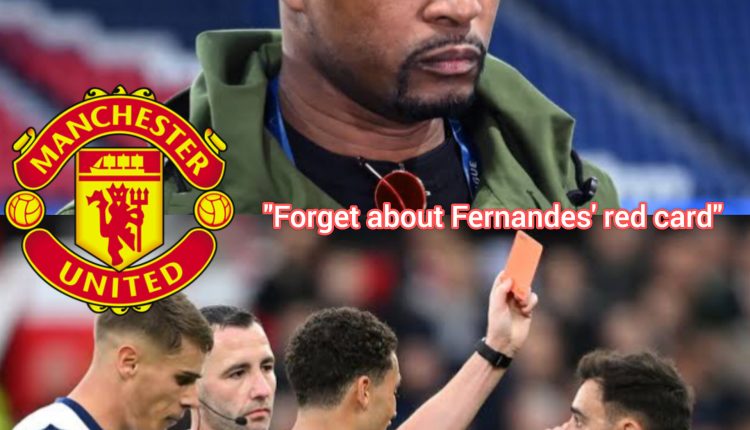Manchester United’s dismal home performance against Tottenham was further marred by the controversial red card shown to Bruno Fernandes late in the first half. The decision has since sparked a heated debate among fans and football pundits alike. Fernandes was sent off for a high challenge on James Maddison, but the Portuguese midfielder fiercely contested the ruling, insisting that his actions were the result of slipping during the tackle. Despite his protests, the damage had already been done. United was trailing 1-0 at the time, and following Fernandes’ dismissal, they eventually collapsed to a humiliating 3-0 defeat. However, attributing the loss solely to the red card would be an oversimplification. The cracks in Manchester United’s game had been evident long before Fernandes left the pitch.
From the very start of the match, Manchester United appeared to struggle for control. Even before the sending-off, the signs of Tottenham’s dominance were unmistakable. At the time of Fernandes’ dismissal, United had managed to hold less than 40% possession, a clear indication that they were being overrun in midfield. Ange Postecoglou’s Tottenham executed their strategy flawlessly, focusing on maintaining a strong presence in the middle of the park. This approach severely restricted United’s ability to build momentum or create meaningful counter-attacks. In stark contrast, Erik ten Hag’s side looked disjointed and reactive, making basic errors that betrayed a lack of preparation and a coherent tactical plan.
The nature of the defeat was even more concerning given the context. United had made significant financial investments in their squad during the summer, and unlike previous seasons, there were no major injury concerns plaguing the team. Yet, despite playing at home, Manchester United seemed passive, almost as if they were the away side. They lacked aggression, creativity, and any semblance of control over the game. Even if Fernandes had not been sent off, the trajectory of the match suggested that United were heading towards a defeat. The red card was merely the tipping point in what was already a poor overall performance.
This defeat has only heightened the pressure on Erik ten Hag. After leading United to an FA Cup victory last season, there were high expectations for the Dutch manager to build on that success. Sporting director Dan Ashworth had anticipated that United would maintain a high level of performance, aiming to challenge for the Premier League title. However, only weeks into the new season, the results have been nothing short of disappointing. United currently finds itself languishing in 12th place in the league table, with a negative goal difference of -3 and a mere seven points from six games. The gap between United and the league’s top teams has widened considerably, leaving fans and the club’s hierarchy questioning whether Ten Hag can turn things around.
The struggles have not been limited to domestic competition. Manchester United’s Europa League campaign has also gotten off to a rocky start, with a particularly uninspiring home draw against FC Twente raising further questions about the team’s form. Even more troubling is the fact that United has failed to score in three of their last four Premier League matches. This glaring lack of attacking output has raised serious concerns about the team’s offensive structure and overall creativity in the final third.
As Manchester United’s underwhelming performances pile up, the scrutiny on Ten Hag’s position is growing more intense. Fans, pundits, and even members of the club’s management have begun to express doubts about whether he is the right man to lead the team forward. The persistent lack of form since their FA Cup triumph has led to discussions behind the scenes about possible replacements. While nothing official has been stated, the mere fact that such conversations are taking place suggests that the club’s leadership is not ruling out the possibility of a managerial change if results do not improve soon.
In conclusion, Manchester United’s current struggles are not just about one red card or one defeat. The performance against Tottenham exposed deeper, more troubling issues within the team. Even before Fernandes’ red card, United looked out of sorts, tactically and strategically. With Ten Hag now facing increasing pressure, the next few weeks will be critical in determining whether he can effectively address these problems or whether Manchester United will look to new leadership to guide them out of their current slump. A reassessment is undoubtedly needed, and the clock is ticking for both Ten Hag an
d his team.
